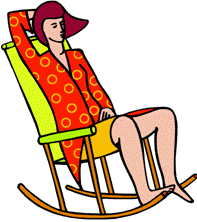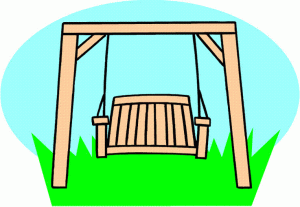TBI and Fatigue
My Story:
It had been over a year since the car accident. Angela was very frustrated with her situation. The doctors who knew her and believed that there was something physically wrong with her, didn’t know what to do. The specialists she had seen were of the opinion that all of her problems were psychological. She had received massage, acupuncture, chiropractic treatments, occupational therapy, physical therapy, speech therapy, and was also seeing a social worker and psychiatrist. She even tried every strategy that she knew of to get better, but nothing seemed to help. The harder she pushed herself to get better, the worse she became.
Maybe her problems were all psychological, though her therapist and psychiatrist did not think that was the case. Angela thought she knew her body…symptoms she tended to have when she was depressed and what helped her get through tough situations in the past. Maybe this time it was different. If it was all psychological, that meant there was hope for feeling better and doing the things she used to enjoy.
Maybe the problem was that she had been too focused on thinking about how awful she felt. If this was keeping her from getting better, she was going to change that now! Angela decided to focus her energies on the genealogical research she had done years ago. That was fun. She was going to look for her ancestors in the census information online! And she was going to stay up all night doing it. She would do it because it was fun and this is what she used to do when she worked on something interesting to her.
When the nausea, blurry vision and headache started, Angela ignored it. “It’s just psychological. I’m doing what I enjoy and I’m not going to let anything get in my way,” she told herself over and over. Finally, at 4:00 a.m., she decided to go to bed.
At 9 a.m., the house was in an uproar. The birds were singing, the dogs howling and the cats meowing – it was time to be fed and they were tired of waiting. Angela felt a little queasy and unsteady, but she brushed it off as due to staying up all night and not getting much sleep. She was not going to let it keep her from having fun and getting better. After everyone was fed she was off to the shower. Her sister would be there in a few hours to take her to the farm to visit with her dad, sister and nephew.
As she began washing her hair, everything started spinning wildly around. She grabbed onto the towel bar, got out of the shower and threw up. Somehow she managed to wrap a towel around her and collapse on the bed. She was scared – even though she knew she was lying on the bed, she felt like she was falling as everything spun around. Finally, she discovered that if she closed her eyes and didn’t move her head or eyes, everything calmed down except for feeling sick to her stomach.
She stayed home that day. For the next two days, she not only felt extremely exhausted, but also had problems with migraines. All she could do those next two days was feed her pets, get something to eat and take medicine for her migraines.
——————————-
TBI and Fatigue
Up to 98% of people with brain injuries experience some type of fatigue; mental fatigue affects approximately 70% of TBI survivors.
Definitions:
Mental (Cognitive) Fatigue: Extreme exhaustion resulting in difficulty performing previously easy mental activities & tasks requiring things like concentration, attention, thinking and understanding. Mental fatigue gets better with rest.
Example: If you were ever a parent who experienced many sleepless nights staying up with an infant, only to go into work the next morning and try to keep your mind on doing your job, you have experienced mental fatigue.
Example: If you were ever a student who stayed up night after night, cramming for exams during finals’ week, you have experienced mental fatigue.
Physical (Neural) Fatigue: Exhaustion due to muscles getting tired, resulting in difficulty performing previously easy physical tasks such as walking, dressing, and everyday chores. Physical fatigue typically gets worse as the day progresses and with increased activity. It is not present when the person is well rested and gets better with rest. This type of fatigue often gets better over time.
Example: If you ever decided to get physically fit and decided to jog a mile without gradually working up to it, you have experienced physical fatigue.
Psychological Fatigue: This is the type of tiredness and lack of energy that is associated with depression. It is typically present early in the morning, gets worse with stress and does not get better with rest.
Example: If you have ever been overdrawn in your checking account and had to wait 2 weeks before your next paycheck, been divorced, or lost someone you loved and depended upon, you have most likely experienced psychological fatigue.
********************************
Even people who recover well from brain injury have ongoing problems with fatigue. Research was done by Baycrest’s Rotman Research Institute in Toronto on brain injury survivors who fully recovered as evidenced by returning to prior job or school level. Although they scored well on standard cognitive tests, they still reported experiencing “mental fatigue” and feeling “not quite the same”. According to the study, brain injury survivors had to work harder to perform at the same level as healthy people who had not experienced brain injury.
Source: “Augmented neural activity during executive control processing following diffuse axonal injury.” Neurology (September 2008): Vol. 71, 812-818.
********************************
Analogy: An injured brain is like an old computer.
Old Computer
§ It takes a longer time to process the same amount of information than a newer computer.
- It has insufficient memory to process several tasks all at one time. Can only operate one “window” at a time.
- If you get impatient with it and keep pushing the command buttons, it will “freeze up” or “crash”!
Injured Brain
- Takes more time to do a task – is slow and inefficient.
- Has to do one thing at a time – has difficulty multi-tasking
- If pushed without any rest or breaks, will work ineffectively and will take longer to recover.
Healthy Brain
- Can do a task quickly and efficiently.
- Can have several tasks going at the same time; is good at multi-tasking.
- Can be pushed hard once in a while and will recover pretty quickly.
People with brain injuries need to rest frequently.
Understanding the Injured Brain
1. The injured brain needs rest to replace needed brain chemicals. The injured brain takes longer to make these chemicals than the healthy brain.
- Lie down in a quiet place and take rest breaks that are at least 10 minutes long. If that’s not long enough, increase to 30 minutes or 1 hour.
- Rest until you feel like you have the energy to take on another activity. If you still feel exhausted, you need to increase your resting time.
2. The injured brain requires a lot of energy to do a task. The injured brain has to “think” about each individual step that a healthy brain does automatically.
- Take a rest break before starting an activity, in the middle of the activity and after finishing the activity.
3. Different people show that their brain is tired in different ways. These are called fatigue cues – behaviors your body does to let you know your brain is tired and to remind you that you need to rest.
Learn to understand what behaviors you show when your brain gets tired. This will let you know when you need to rest. Some examples of fatigue cues are
- Becoming very emotional (i.e., angry outbursts, arguing, crying)
- Staring off into space, daydreaming
- Yawning or falling asleep
- Forgetting what you were doing
- Difficulty following or remembering what you or another person just said
- Catching yourself doing “silly” things like putting the dishes in the washing machine instead of the dishwasher, ice cream in the kitchen cabinet instead of refrigerator
4. Sometimes the person with the brain injury does not recognize when his/her brain is getting tired.
- Ask others to help you figure out your fatigue cues listed above.
- Ask others to remind you that you need to rest by saying something like, “I notice that you are becoming very emotional. I think your body is trying to tell you that you need to take a rest break.”
5. Sometimes the person with the brain injury recognizes when his/her brain is getting tired, but others don’t understand.
· Tell others, “My brain is getting tired now. I need to rest for a while.”
6. Rest is time when you are not thinking, talking, doing something or worrying.
- Listen to relaxing music or a guided meditation.
- Watch TV or take a nap. (Note: Sleeping requires more energy than watching TV.)
7. The injured brain sometimes has difficulty filtering out sights and sounds.
- Use an eye mask to help block out visual stimulation.
- Use noise reduction head phones to help block out sounds.
8. The injured brain sometimes has difficulty calming down after being stimulated.
- Do deep breathing for relaxation. (See handout on Breathing Techniques)
- Rock in a rocking chair or a glider swing. Or while lying down, rock your body either up and down or side to side.
- Wrap a blanket snugly around yourself.
- Place a weighted blanket or weighted vest on top of you.
9. If you push yourself too hard and too fast, it will take longer for your brain to recover.
· As soon as you feel tired, you need to stop and rest.
10. The injured brain often requires more time than you anticipate to  accomplish a task.
accomplish a task.
- Write a list of tasks you want to accomplish on a write on/wipe off marker board. Prioritize the top 3 tasks for the day
- Work on tasks requiring a lot of physical or mental energy either early in the morning or whenever you function at your best.
11. Sleep problems (i.e., insomnia, sleep apnea) are common side effects of TBI.
- Sleep problems can either be the cause of fatigue or make it worse. Check with your doctor as to whether a sleep study is advised.
People with brain injuries sometimes find it hard to rest.
Obstacles to Resting
1. Sometimes it is hard to rest because you were used to pushing yourself hard to accomplish a lot before your brain injury.
Remind yourself that your brain has changed. It works differently now.
- Your new brain will “crash” and take longer to recover if you push it too hard and too quickly.
- Your new brain can accomplish more in a shorter amount of time if you rest when you get tired and make sure you don’t get overly tired.
2. Sometimes it is hard to rest because you might feel like you are being “lazy” or others may have told you that you are lazy.
- Remind yourself and others: “If I don’t rest when I need to, I’m not allowing my brain to heal.”
- Or: “If I don’t rest when I need to, it will take me longer to recover from feeling tired.”
3. You might get tired and need to rest while you are at someone else’s house. 
- Ask: “I need to let my brain rest for a while. Is there a quiet place where I could lie down?”
- Other options might include:
– watch TV so you don’t have to expend a lot of energy talking and socializing
– sit in a glider or rocking chair and rock with your eyes closed
– sit in your car with the seat reclined to get some solitude and quiet if there is a large crowd of people, no quiet spaces, and the weather allows
4. I have to wait until I reach an end point while I’m working on a project/task, or I’ll forget what I was doing and won’t finish it.
- Purchase a brightly colored piece of felt, such as florescent orange or hot pink. Place this over the top of what you were doing/working on. This color will serve to remind you to return to this project as soon as you see it.
5. If you have pushed yourself too hard and know that you probably need a day to recover, it can be difficult to resist the urge to force yourself to accomplish something.
- Post a reminder to yourself by writing the following on an 8 1/2 x 11” piece of paper: Today Is A TV Day
(Note: TV stands for both “television” and “total vegetation”)
© Angela Cramer, 2008
Clipart is the property of Jupiterimages made available through subscription:
© Jupiterimages Corporation, 2008 www.clipart.com
_____________________________________________
Sources:
“Augmented neural activity during executive control processing following diffuse axonal injury.” Neurology (September 2008): Vol. 71, 812-818.
“About Traumatic Brain Injury TBI.” Betty Clooney Foundation. 20 Sept 2008 <http://www.bettyclooneyfoundation.org/aboutFatigue.html>
Bonfiglio, MD, Richard, “Long Term Consequences of Traumatic Brain Injury Including Cognitive Fatigue.” Cincinnati TBI Conference, March 30, 2007.
“Fatigue and TBI.” Craig Hospital. 20 Sept 2008
<http://www.craighospital.org/tbi/DOC_Fatigue_Long.asp>
Keller, Lisa and Knutson, CRC, CDMS, CCM Sandra J. The Buddy Book: A Practical Guide to Recovery after Brain Injury. The Brain Injury Recovery Kit: 2005, pp. 29-31.
Mooney, MSW, Tina, “I’m a Heck of a Sprinter But Life Is a Marathon: A Survivor’s Guide to Living with Cognitive Fatigue.” Cincinnati TBI Conference, March 30, 2007.
RCH Paediatric Rehabilitation Service. “Brain Injury – Cognitive Fatigue.” The Royal Children’s Hospital Melbourne Feb 2007. 20 Sept 2008
<http://www.rch.org.au/kidsinfo/factsheets.cfm?doc_id=10565>
————————————
TBI and Fatigue Handout
Page 1 tbi-fatigue_p1
Page 2 tbi-fatigue_p2
Page 3 tbi-fatigue_p3
Page 4 tbi-fatigue_p4
Page 5 tbi-fatigue_p5
Page 6 tbi-fatigue_p6
Tags: TBI, Traumatic Brain Injury, Acquired Brain Injury, Post Concussion Syndrome, Fatigue














Thank you for this site. I had a bi in 2001. I have had a difficult time explaining my “symptoms” to my family and friends for years. I have 2 children ages 9 and 11.
The information you have is right on the money. Thank you.
Shelly,
Thank you for your comment. It’s hard having “an invisible disability” because it makes it so difficult for others to understand. The other thing that is so hard is having a brain injury and being a parent.
I hope that my website will make it easier for survivors and their loved ones understand brain injury better so that individuals don’t feel like they have to travel this path alone for so many years. Please let me know of other topics you think are important to address, as well as offering strategies, resources, etc. which have helped you on your journey.
Best wishes,
Angela
I am enjoying your site. Our daughter had a severe TBI June 2004. Everything you have stated is so true. I hope people who are walking this path find your website. You will be helping so many who are trying to learn a new path and that it can be difficult at times. But always take one day at a time.
Nice blog with great helpful info and all the best
craig
PS: Tried to reblog to http://www.headbraininjury.wordpress.com